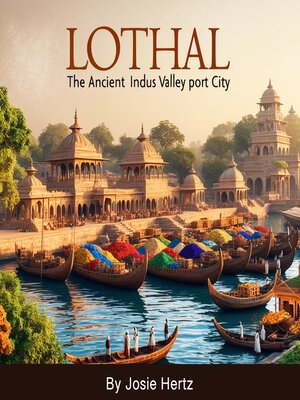
Sign up to save your library
With an OverDrive account, you can save your favorite libraries for at-a-glance information about availability. Find out more about OverDrive accounts.
Find this title in Libby, the library reading app by OverDrive.



Search for a digital library with this title
Title found at these libraries:
| Library Name | Distance |
|---|---|
| Loading... |
This audiobook is narrated by a digital voice.
In the tidal marshlands of Gujarat, where the Sabarmati River winds toward the Arabian Sea and the monsoon transforms vast stretches of land into temporary lakes and waterways, lies one of the ancient world's most remarkable archaeological sites. Lothal, whose name means "mound of the dead" in Gujarati, represents far more than its morbid designation suggests, as this 4,500-year-old settlement has revealed itself to be the world's earliest known artificial dock and a crucial maritime gateway that connected the sophisticated Indus Valley Civilization to the broader networks of Bronze Age trade and cultural exchange across the Arabian Sea and beyond.
The discovery of Lothal began in 1954 when Archaeology Survey of India archaeologist S.R. Rao, following up on reports of ancient mounds in the Bhal region of Gujarat, initiated excavations that would gradually reveal one of the most important and well-preserved Harappan sites ever found. The systematic excavation of this modest tell, rising only 13 meters above the surrounding plain, would ultimately uncover evidence for sophisticated urban planning, advanced engineering techniques, and maritime technologies that challenged existing assumptions about the capabilities and reach of Bronze Age civilizations in the Indian subcontinent.







